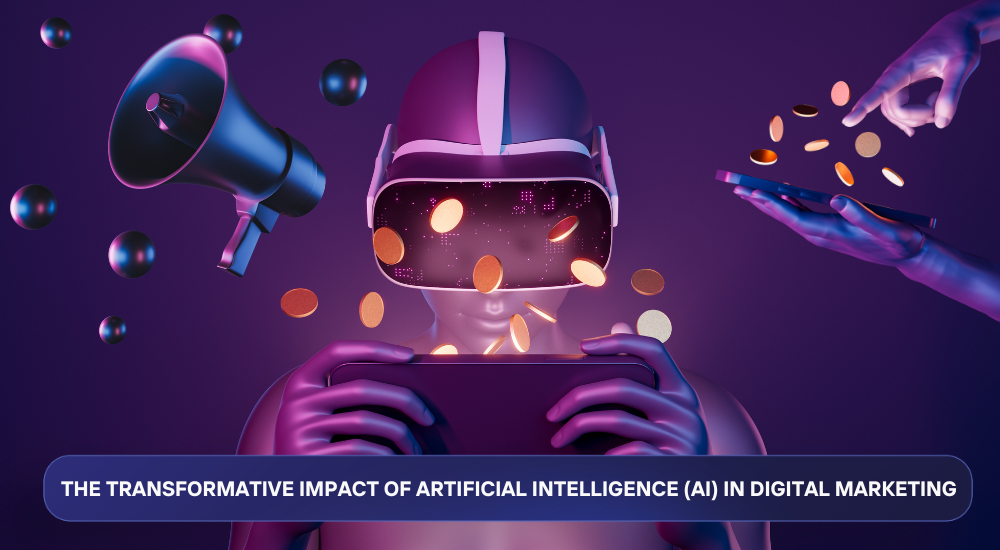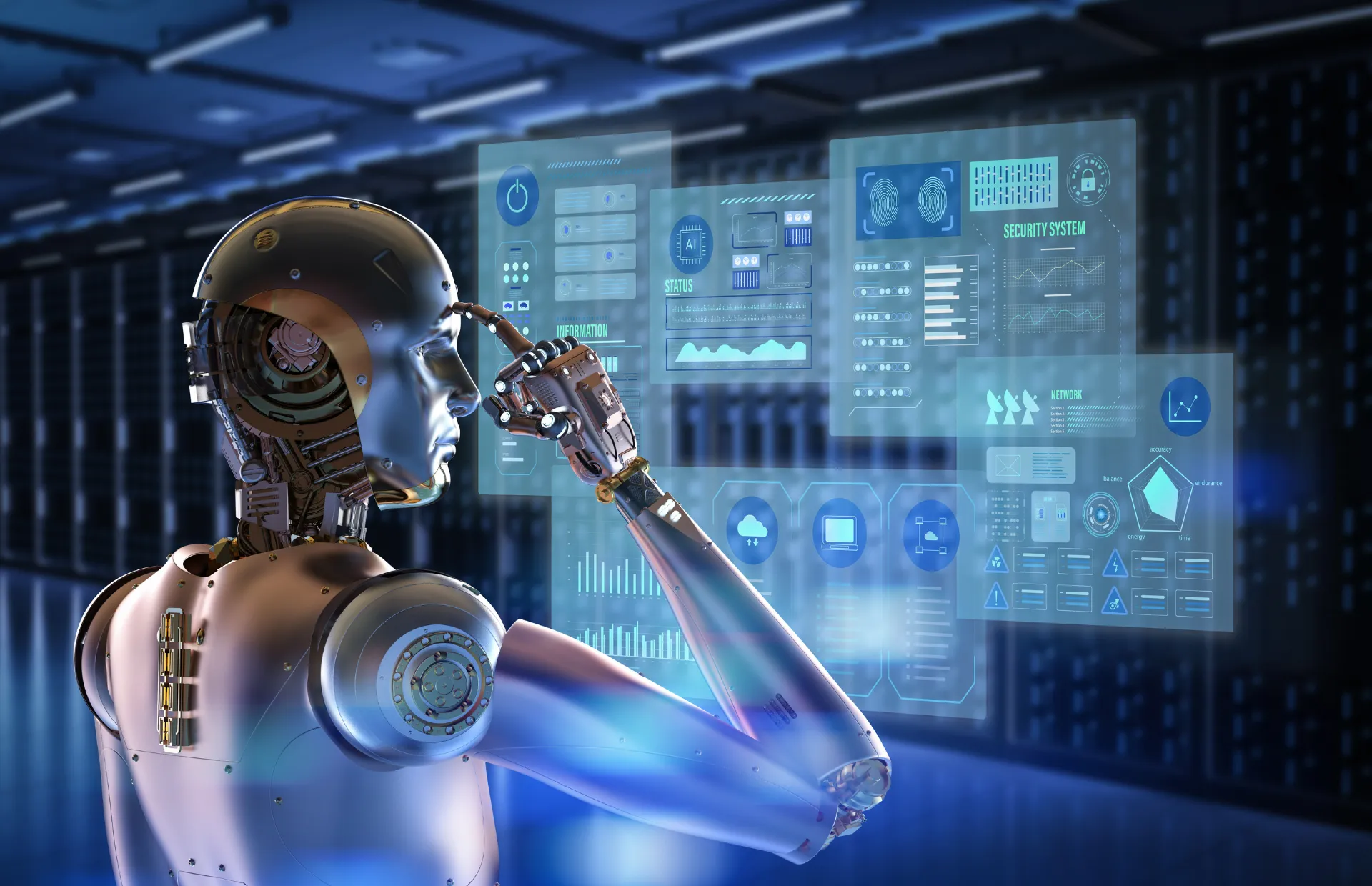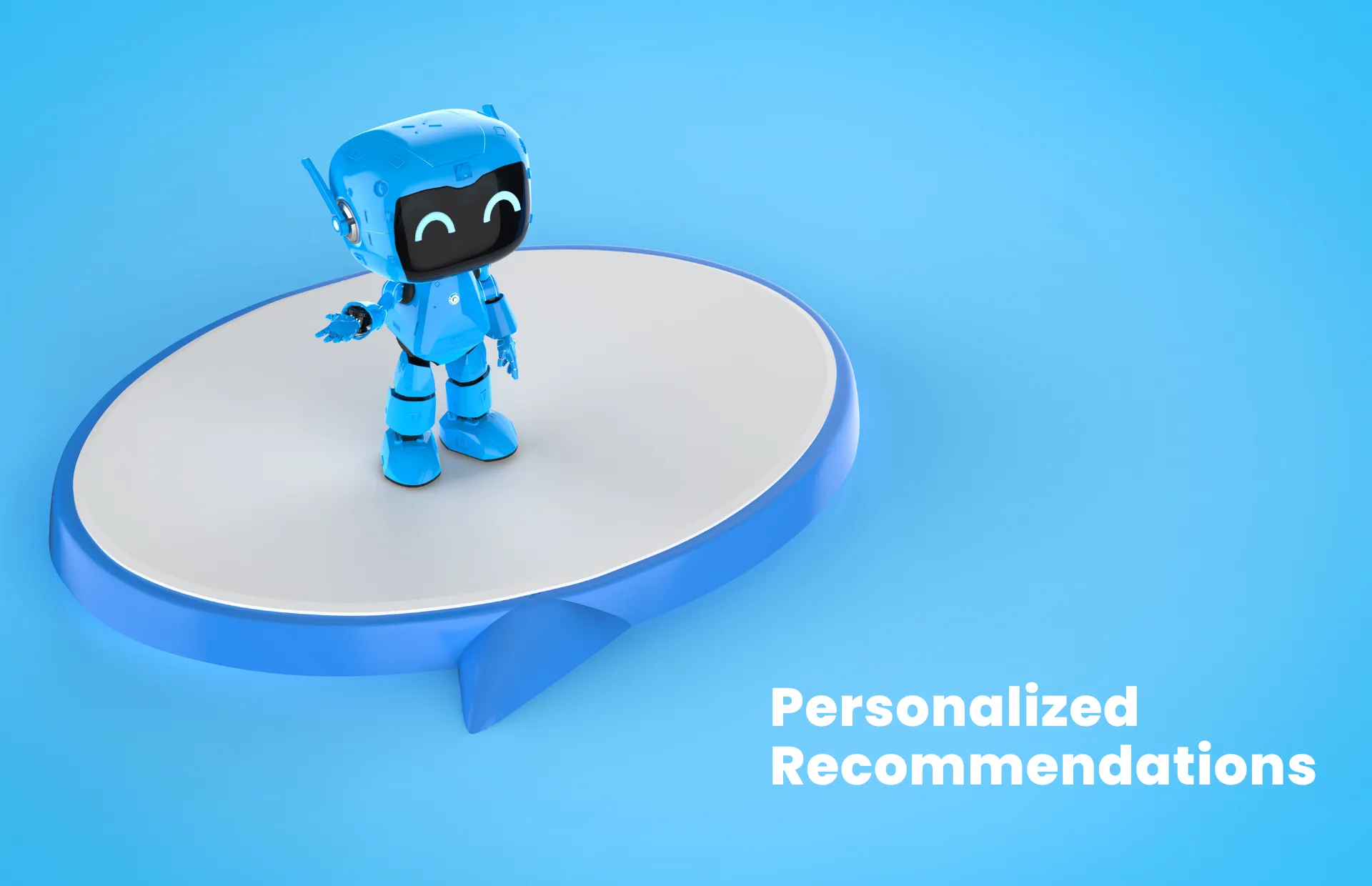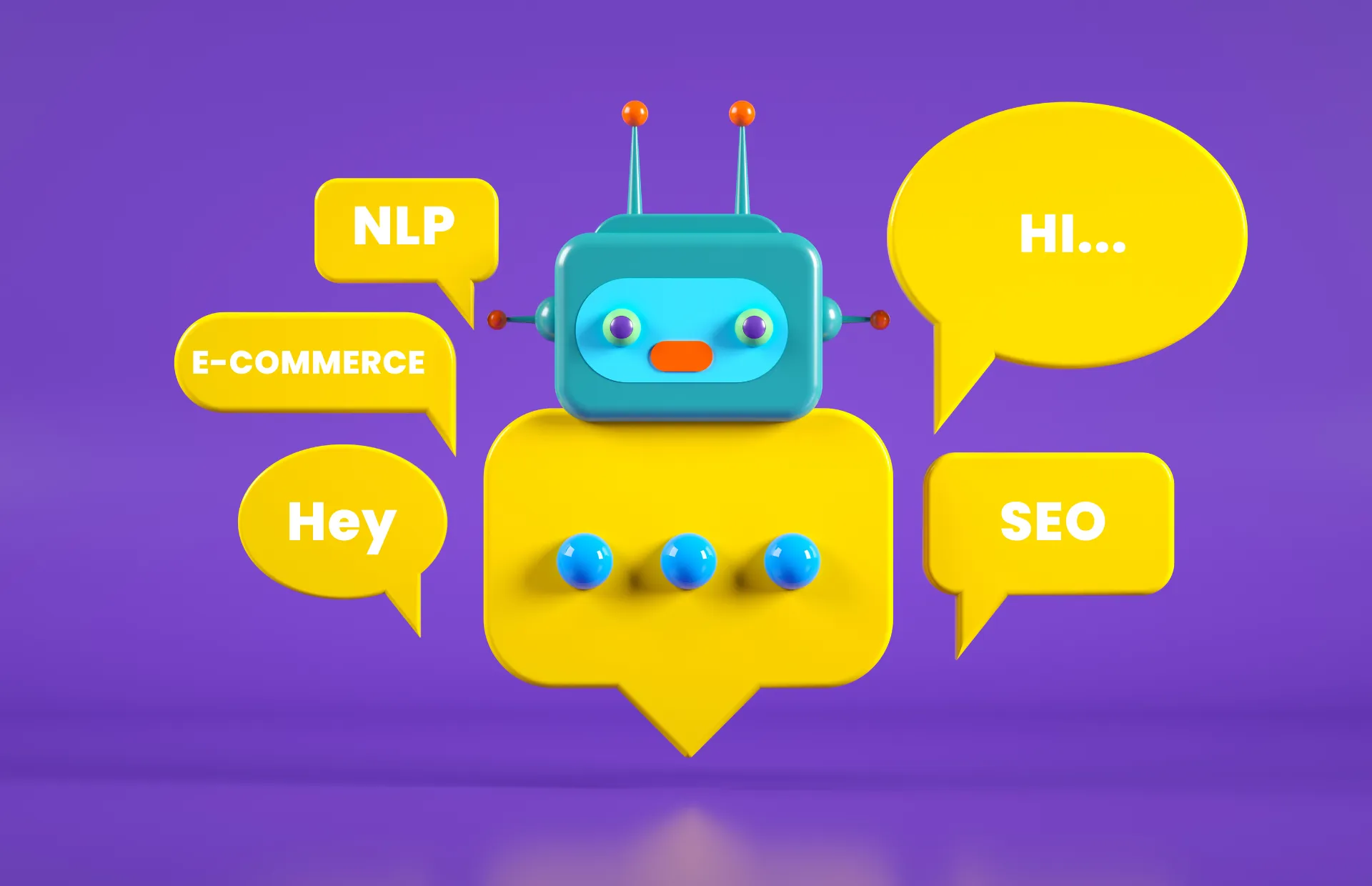The Transformative Impact of Artificial Intelligence (AI) in Digital Marketing

Written by Sannia
5 Minute Read

Table of Contents
Artificial intelligence (AI) is transforming the world of marketing, creating incredible new ways for businesses to connect with their customers. It's not just a passing fad; AI is fundamentally changing how companies engage with their audiences and run their operations. By automating repetitive tasks, enhancing personalization, and enabling dynamic, data-driven decision-making, AI is revolutionizing the marketing landscape in profound ways, and digital marketing companies are incorporating this trend.
This shift allows businesses to provide more tailored and meaningful content, enhance customer experiences, and boost marketing efficiency. With tools like predictive analytics, customer segmentation, chatbots, and personalized recommendations, AI offers marketers new ways to understand and connect with their customers like never before. As we look deeper into how AI is changing marketing, it becomes clear that this technology is not only enhancing current practices but also paving the way for innovative approaches that will define the future of the industry.
Automating Repetitive Tasks
One of the biggest benefits of AI in marketing is its ability to handle repetitive tasks. This includes scheduling social media posts, creating web traffic reports, and running webinars. By letting AI take care of these time-consuming chores, marketers can focus more on strategic and creative projects.
For example, AI tools can automatically post on social media at the best times, ensuring maximum engagement without manual effort. Similarly, AI-powered analytics can generate comprehensive reports on web traffic, highlighting key trends and insights that would take hours to compile manually. This automation increases efficiency and allows marketers to allocate their time and resources to tasks requiring human creativity and strategic thinking.

Here are some specific examples of how marketing automation can benefit marketers:
- Email Marketing Automation: Marketers can create automated email campaigns triggered by user actions, such as signing up for a newsletter or making a purchase. These automated emails might include welcome messages, reminders for abandoned carts, and personalized recommendations. By automating these processes, marketers save time and maintain regular communication with their audience.
- Social Media Posting: AI-powered tools can schedule and post social media updates on different platforms. Marketers can plan content ahead of time, choose the best times to post, and maintain a steady online presence. Automation also allows testing different versions of posts to see which ones connect best with the audience.
- Lead Nurturing: Marketing automation helps nurture leads throughout the customer journey. For example, when a user downloads an ebook, an automated workflow can send follow-up emails with related content or invitations to webinars. By automating lead nurturing, marketers can guide prospects toward conversion without manual intervention.
- Personalization: AI algorithms analyze user behavior and preferences to deliver personalized content. Whether it’s product recommendations, dynamic website content, or targeted ads, automation ensures a tailored experience for each user, improving engagement and conversion rates.
- Analytics and Reporting: Marketing automation tools generate real-time reports on website traffic, campaign performance, and user behavior. Marketers can access insights without manual data compilation. These reports inform decision-making, allowing marketers to adjust strategies based on data-driven insights.
Get a free quote today!
Effective Customer Segmentation
AI excels at handling large amounts of customer data and using complex algorithms to group customers based on their purchase history, online behavior, and interactions with the brand. This allows marketers to create highly personalized marketing campaigns for different customer segments.
For instance, an online store can use AI to analyze customers' past purchases and browsing habits, identifying trends and preferences. Then, they can use this information to create targeted marketing campaigns that resonate with each customer group, increasing the likelihood of purchases. By understanding their customers better, businesses can deliver more relevant and personalized experiences, fostering stronger relationships and driving customer loyalty.
Personalized Recommendations
Personalization is key in today's marketing landscape, and AI plays a crucial role in making it happen. AI algorithms analyze user behavior and preferences to offer personalized suggestions for products or content. Platforms like Spotify and Netflix use this technology to provide users with recommendations that match their listening or viewing habits.
In the retail sector, AI-powered recommendation engines can suggest products that align with a customer's past purchases and preferences, increasing the chances of upselling and cross-selling. By providing personalized recommendations, businesses can improve the customer experience, increasing engagement and sales.

Dynamic Pricing
AI-powered dynamic pricing is another transformative application of AI in marketing. This technology adjusts prices in real-time based on factors such as demand, competitor pricing, and market conditions. Dynamic pricing is commonly used by companies like Uber and airline ticketing platforms, where prices fluctuate based on demand and other variables.
For instance, during peak hours, ride-sharing apps can increase prices to match the high demand, optimizing revenue. Similarly, airlines can adjust ticket prices based on factors such as seat availability and competitor pricing. This flexibility helps businesses boost profits and stay competitive in ever-changing markets.
Customer Support Chatbots
AI chatbots using natural language processing (NLP) are revolutionizing customer support by offering quick and efficient interactions. They can answer questions, resolve issues, and even help customers through the buying process.
For instance, an AI chatbot on an e-commerce site can help customers find products, answer questions about shipping and returns, and process orders. By providing round-the-clock support, chatbots improve the customer experience, ensuring timely help whenever it's needed. This boosts customer satisfaction and allows human agents to focus on more complex queries.

Remaining Competitive
In an increasingly competitive business landscape, adopting AI marketing practices is essential for staying ahead. AI-powered insights and automation help businesses quickly adapt to market changes, fine-tune their marketing strategies, and provide personalized experiences on a large scale.
By using AI, companies can stay agile and adapt to evolving consumer preferences and market dynamics, ensuring long-term success. Companies like Cynosure Designs make sure to implement all the possible advancements into the world of technologies and AI to let its customers compete ahead in the market.
Here are some specific examples of how companies can leverage AI for a competitive edge:
- Real-Time Personalization: AI analyzes user behavior to deliver personalized content, product recommendations, and targeted ads. Companies can tailor their messaging to individual preferences, increasing engagement and conversions.
- Predictive Analytics: AI models can predict customer behavior, such as churn risk or purchase likelihood. This helps businesses proactively address issues or offer incentives to retain valuable customers.
- Dynamic Pricing: As mentioned earlier, dynamic pricing adjusts prices based on demand, competitor rates, and other factors. Companies can optimize revenue while staying competitive.
- Chatbots and Customer Support: AI-powered chatbots provide instant assistance, improving customer experiences. Companies can offer 24/7 support without human intervention.
- Automated Campaigns: AI automates email marketing, social media posting, and lead nurturing. Companies can focus on strategic tasks while maintaining consistent communication.

Conclusion
Artificial intelligence is a transformative force in the marketing world, offering unprecedented opportunities for businesses to enhance consumer interactions, automate tasks, and create more personalized campaigns. From automating repetitive tasks to enabling dynamic pricing and providing personalized recommendations, AI is reshaping marketing strategies and practices. As the technology continues to evolve, businesses that embrace AI will be better positioned to engage with their customers and stay competitive in the ever-changing market landscape.
Originally Published August 7, 2024 04:23 AM, Updated January 31, 2025.
Editor's Picks
5 Minute Read | Sannia
5 Minute Read | Sannia
5 Minute Read | Sannia
5 Minute Read | Sannia



